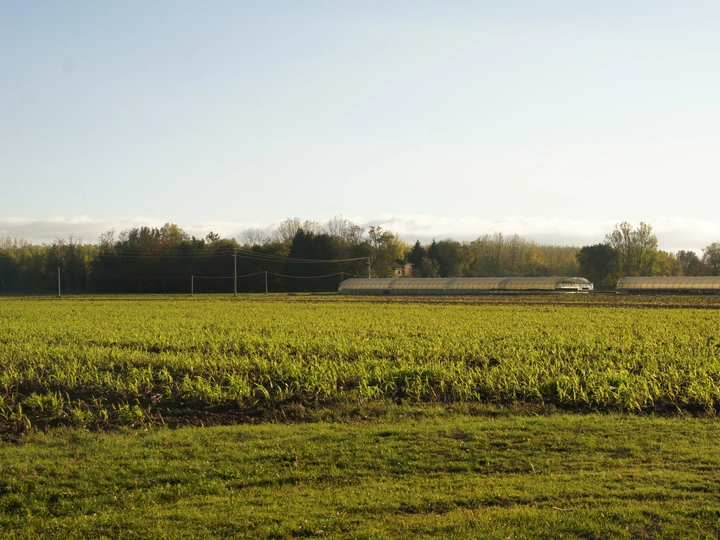Commons Governance: A European Atlas

Marie Vendier
French team of young architects with a background in architecture and architectural history, Juliette Taymont and Marie Vendier are based in Paris. Their practice is rooted in a transdisciplinary approach, weaving together urbanism, heritage studies, and agroecology. They seek to understand the landscapes and systems we inherit, while imagining the possible futures of rural and agrarian territories.
Juliette Taymont specializes in architectural heritage. She collaborates with Chief Architect for Historic Monuments Pierre-Antoine Gatier, where she develops a detailed and sensitive approach to conservation and the valorization of historic sites. Her perspective is grounded in fieldwork and archival knowledge, engaging questions of memory, transformation and care.
Marie Vendier works at AREP, where she studies territorial dynamics and spatial transformation. Her work bridges scales and times, linking infrastructural systems with landscape and cultural identity. She draws on her background in history and urbanism to observe how space evolves and how narratives shape our understanding of place.
Together, they have led field research projects in France and Italy. Their shared background in architecture and history allows them to read territories across multiple layers, from soil to story, from institutional maps to lived geographies. Their work focuses on territorial continuities, the role of common resources, and the emergence of new rural imaginaries.
They received awards, notably from the Maison de l’Architecture Île-de-France for their work on residual spaces in the Garonne plain. They also actively participate in academic research, including contributions to symposiums such as Catalyser des mondes: vers un approfondissement des territoires par l’agriculture, which highlight and promote the relationship between agriculture and architecture.
In response to the growing challenges of the climate crisis, resource scarcity, and increasing inequalities in access to land, water, energy, and housing, many local initiatives across Europe are experimenting with alternative ways of inhabiting and shaping territory. Inspired by the logic of the commons, these collective practices of management, use, and care, whether applied to natural, built, or symbolic resources, are re-emerging as credible alternatives to state-led or privatized governance models. However, such forms of shared governance often remain isolated, fragile, and under-recognized by existing institutional frameworks, with limited documentation of their spatial dimensions.
This proposal aims to identify, map, and activate contemporary territorial commons across Europe in both urban and rural contexts. Through participatory action research and immersive fieldwork in pilot sites, we will engage with actors involved in self-managed initiatives, cooperatives, citizen collectives, experimental municipalities. These case studies will help analyze governance frameworks and explore how spatial design enables, constrains, or amplifies collective dynamics.
Territorial workshops will be held to co-develop activation tools with local communities: usage scenarios, micro-architectures, signage systems, digital platforms, and collective rituals. The project draws from architecture, urbanism, sociology, design, and political science.
Expected outcomes include a sensitive map of visited commons, a practical handbook of light governance tools, and a site-specific exhibition. Within the LINA Fellowship, the project aims to foster a European culture of care, cooperation, and shared governance as a foundation for ecological and democratic transitions.